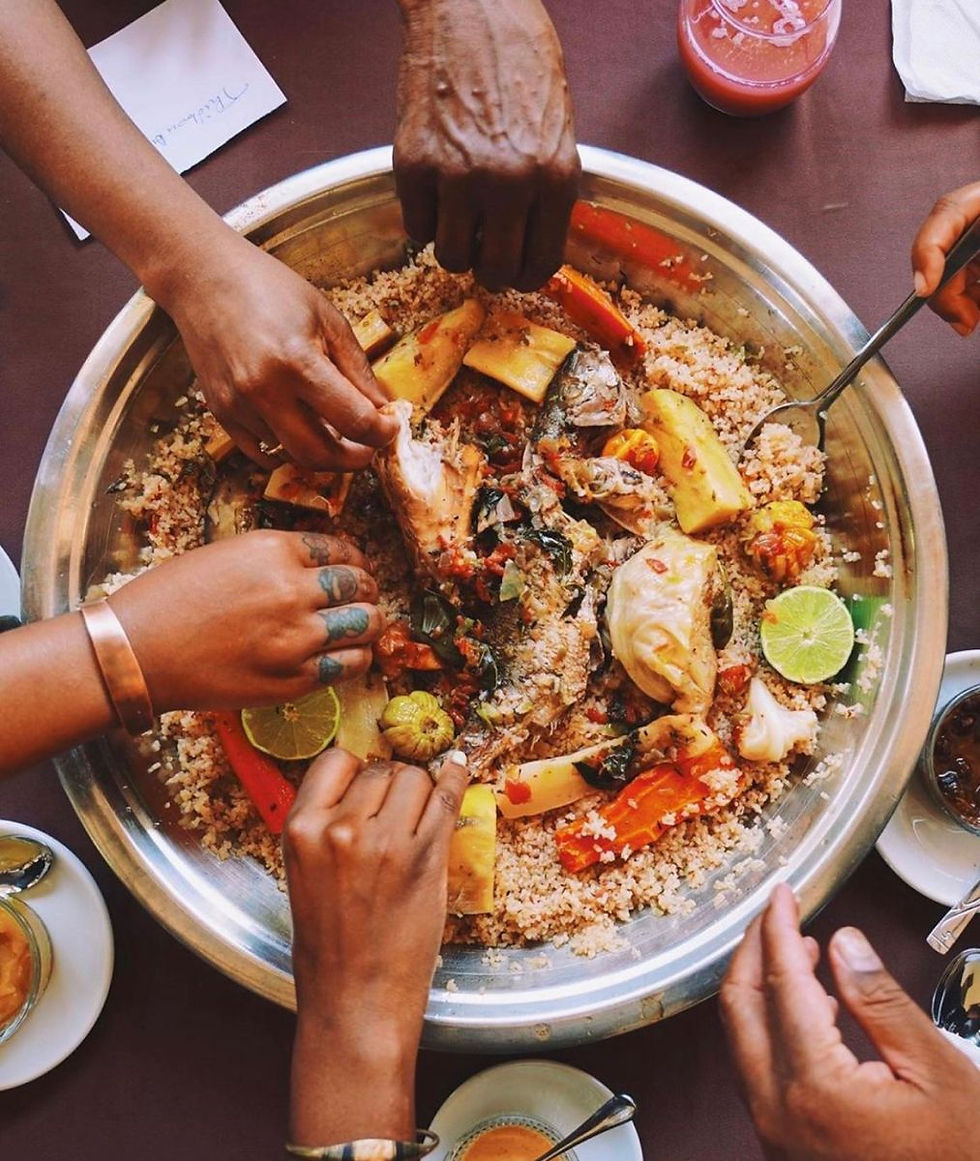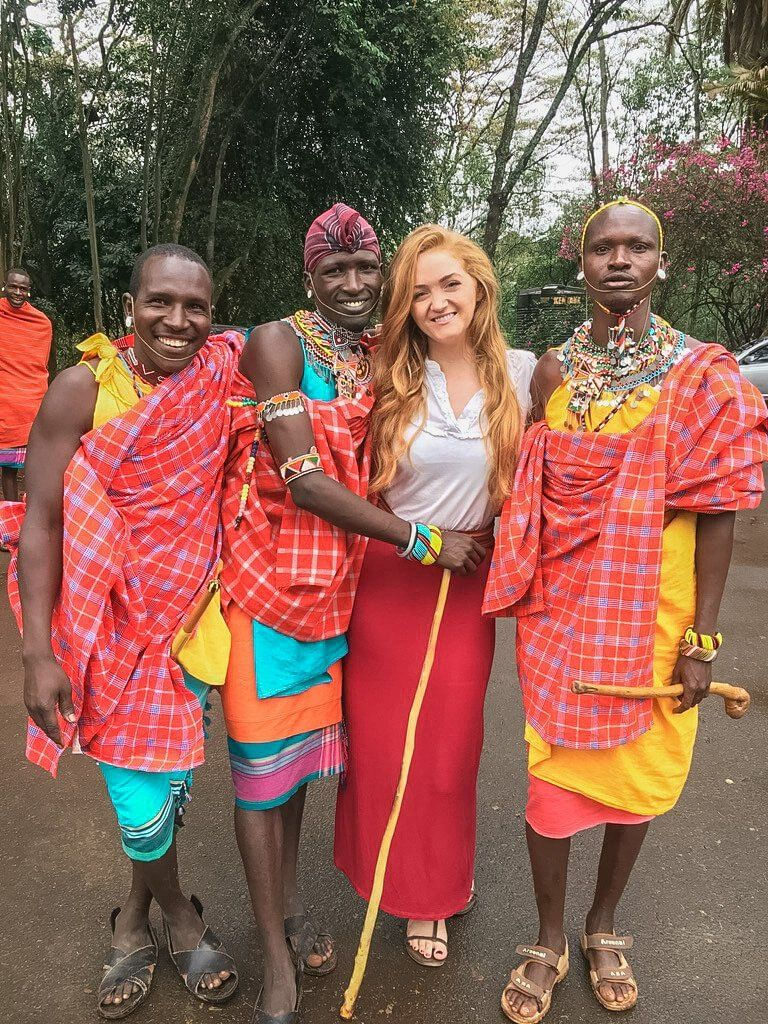Essential Phrases & Cultural Tips to Navigate East Africa
- Imeru Wambui
- Sep 2, 2025
- 4 min read

East Africa is one of the most welcoming regions in the world, known for its warm hospitality, vibrant cultures, and breathtaking landscapes. From the bustling streets of Nairobi and Kampala to the serene shores of Zanzibar and the rolling hills of Rwanda, every journey here becomes richer when you can connect with people on a personal level.
While English (and French in parts of Rwanda and Burundi) is widely used in cities, airports, and hotels, locals deeply appreciate it when visitors make the effort to use regional languages.
Among them, Swahili stands out as the region’s most widely spoken language, spoken across Kenya, Tanzania, Uganda, Burundi, and the Democratic Republic of the Congo. In fact, Swahili is often referred to as the “language of unity” in East Africa, as it bridges diverse cultures and communities.
Beyond Swahili, you’ll also encounter:
Kinyarwanda → the national language of Rwanda.
Luganda → widely spoken in Uganda, especially around Kampala.
Local dialects → like Kikuyu in Kenya or Kirundi in Burundi, which add depth if you travel off the beaten path.
Learning just a handful of greetings, polite words, and everyday expressions can open doors—whether you’re bargaining in a lively Maasai market, asking for directions to a safari lodge, or sharing a meal in a village. It’s not just about communication; it’s about respect, trust, and cultural connection.
1. Greetings & Politeness
A warm greeting is the heart of East African hospitality.
English | Swahili | Kinyarwanda | Luganda |
Hello | Jambo / Habari | Muraho | Oli otya? |
How are you? | Habari gani? | Amakuru? | Oli otya? |
I’m fine | Nzuri | Ni meza | Gyendi |
Thank you | Asante | Murakoze | Webale |
Please | Tafadhali | Nyabuneka | Nsaba |
Excuse me / Sorry | Samahani | Mbabarira | Nsonyiwa |

2. Getting Around
From matatus to boda-bodas, transport is part of the adventure.
English | Swahili | Kinyarwanda | Luganda |
Where is…? | Iko wapi…? | Iri he…? | Waali wa…? |
How far is it? | Ni mbali kiasi gani? | Ni kure? | Gyewali ki? |
Bus | Daladala / Matatu | Bisi | Bbaasi |
Motorcycle taxi | Boda-boda | Moto | Boda-boda |
Taxi | Teksi | Tagisi | Takisi |
Hotel | Hoteli | Hoteli | Woteli |
Useful numbers (Swahili):
1 = Moja, 2 = Mbili, 5 = Tano, 10 = Kumi, 20 = Ishirini, 50 = Hamsini, 100 = Mia moja

3. Shopping & Bargaining
Markets are lively, colorful, and full of energy. Bargaining is expected done with humor and respect.
English | Swahili | Kinyarwanda | Luganda |
How much is this? | Hii ni bei gani? | Ni angahe? | Ssente mmeka? |
Too expensive | Ni ghali sana | Bihenze cyane | Kibizibu nnyo |
Can you reduce the price? | Punguza bei kidogo | Mwabikora make? | Osobola okuggyako? |
I’ll take it | Nitaichukua | Nzayitwara | Nzijja kutwala |
Do you have change? | Una chenji? | Ufite amafaranga asigaye? | Olinayo ensimbi ennyingi? |
4. Food & Drinks
Food is central to culture in East Africa.
English | Swahili | Kinyarwanda | Luganda |
Food | Chakula | Ibiryo | Ebyokulya |
Water | Maji | Amazi | Amazzi |
Tea | Chai | Icyayi | Caayi |
Beer | Bia | Bière | Biyira |
I don’t eat meat | Sili nyama | Sindya inyama | Sirya nyama |
Not spicy | Bila pilipili | Nta piment | Tekiba kikalu |

5. Health & Emergencies
Safety first—these phrases could be vital.
English | Swahili | Kinyarwanda | Luganda |
Help! | Nisaidie! | Mfasha! | Nnyamba! |
Where is the hospital? | Hospitali iko wapi? | Ibitaro biri he? | Woddu liri wa? |
I need medicine | Nahitaji dawa | Nkeneye imiti | Njagala eddagala |
I feel sick | Ninahisi mgonjwa | Ndumva ndwaye | Ndi muwulire |
Pain | Maumivu | Ububabare | Obulumi |
6. Accommodation & Travel
Checking in or booking a safari? These will help.
English | Swahili | Kinyarwanda | Luganda |
I have a booking | Nina booking | Mfite réservation | Nnina bukinga |
Where is the bathroom? | Choo kiko wapi? | Ubwiherero buri he? | Kasasiro wa? |
Do you have Wi-Fi? | Mna Wi-Fi? | Murafite Wi-Fi? | Mulina Wi-Fi? |
Water | Maji | Amazi | Amazzi |
Safari/Journey | Safari | Urugendo | Olugendo |
7. Social & Cultural Etiquette
Politeness and respect are at the core of East African life.
Respectful greeting to elders → Shikamoo (reply: Marahaba)
The food is delicious → Chakula ni kitamu
You are kind → Wewe ni mwema
Goodbye → Kwaheri (to one person) / Kwa herini (to many)

8. Cultural Etiquette & Social Tips
Greetings & Respect
Always greet the eldest person first.
Don’t rush greetings—people often ask about your day, health, and family.
Handshakes are common; in Rwanda, a slight bow adds respect.
Body Language
Use your right hand to give or receive items.
Gesture with your whole hand, not one finger.
Personal space is smaller in rural areas than in Western cultures.
Dining Etiquette
Wash hands before meals—water may be provided.
Wait to be invited before serving yourself.
Respect dietary restrictions, especially in Muslim communities.
Photography & Tourism
Always ask before taking photos of people or cultural sites.
Dress modestly, especially in Zanzibar and rural areas.
Dos & Don’ts
✅ Do learn a few words of Swahili; it creates instant rapport.
✅ Do bargain in markets, but with humor and patience.
✅ Do greet everyone warmly when entering a home.
❌ Don’t show frustration openly, it’s seen as disrespectful.
❌ Don’t assume English works everywhere; locals love effort in their languages.
❌ Don’t point at people directly with one finger.

Final Thoughts
Traveling through East Africa is more than sightseeing; it’s about relationships, stories, and shared moments. By learning a few words in Swahili, Kinyarwanda, or Luganda, and pairing them with cultural awareness, you’ll experience the region on a deeper level.
Locals often say that “a smile is the same in every language,” but when you add a heartfelt Asante sana (thank you very much) or Murakoze cyane (thank you very much in Kinyarwanda), the connection becomes unforgettable.
With language as your bridge and respect as your guide, East Africa will feel not just like a destination but like home



Comments